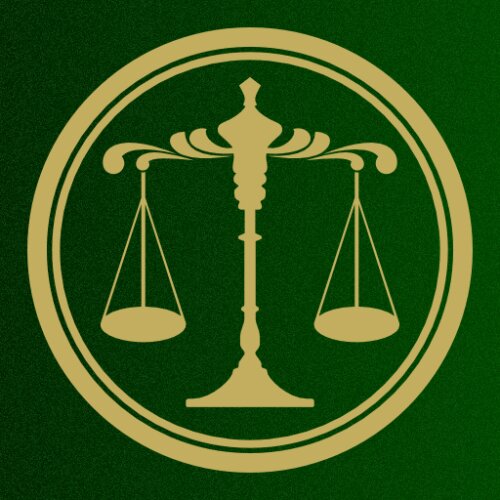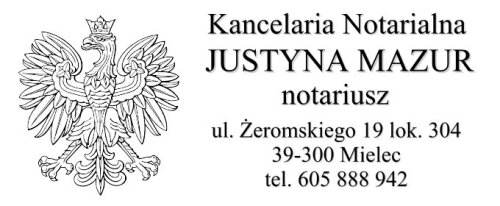Best Government Contract Lawyers in Poland
Share your needs with us, get contacted by law firms.
Free. Takes 2 min.
Or refine your search by selecting a city:
List of the best lawyers in Poland
About Government Contract Law in Poland
Government contract law in Poland governs the legal framework within which public procurement processes occur. This branch of law ensures that transactions between government entities and private contractors are conducted in a fair, transparent, and competitive manner. The aim is to achieve the best value for public funds while upholding the principles of equal treatment, non-discrimination, and proportionality. Poland’s government contract law aligns with the European Union's directives on public procurement to standardize processes and foster a single market.
Why You May Need a Lawyer
Engaging a lawyer in the field of government contracts is often necessary due to the complexity and technical nature of procurement laws. Common situations where legal help might be required include:
- Drafting and reviewing contract proposals to ensure compliance with legal standards.
- Negotiating terms to maximize the benefits and minimize the risks for a contracting entity.
- Resolving disputes or claims related to contract performance or fulfillment.
- Assisting in cases of bid protests or challenges to procurement decisions.
- Advising on compliance with the stringent rules and regulations governing government contracts to avoid penalties.
Local Laws Overview
The primary legislation governing government contracts in Poland is the Public Procurement Law. This framework was significantly revised in 2021 to improve clarity and address the challenges of modern procurement. Key aspects include:
- Transparency and Accountability: The law dictates strict rules for publishing contract opportunities and award notices to ensure transparency.
- Competitive Tendering: A general preference for competitive procedures designed to prevent unfair advantages and corruption.
- Threshold Values: Specific financial thresholds determine procedural obligations and competitive requirements.
- Equal Treatment and Non-Discrimination: Rights and duties of the parties are designed to uphold fairness, providing equal opportunity for bidders.
- Dispute Resolution Mechanisms: Provisions for mediation and court appeals, facilitating efficient resolution of contractual disputes.
Frequently Asked Questions
1. What is the scope of the Public Procurement Law in Poland?
The scope includes all public procurement activities conducted by state bodies, local authorities, and other entities utilizing public funds. It covers the process from advertisement to contract award.
2. What are the common types of procurement procedures?
Common procedures include open tenders, restricted tenders, negotiated procedures, and competitive dialogue among others, each with specific conditions for use.
3. How can I challenge a public procurement decision?
Aggrieved parties can challenge procurement decisions through an appeal to the National Appeal Chamber (KIO), followed by further appeal to administrative courts if necessary.
4. Are there penalties for non-compliance with procurement laws?
Yes, non-compliance can result in penalties, including fines, cancellation of contracts, or exclusion from future bidding.
5. Can foreign companies participate in Polish public procurements?
Yes, foreign entities can participate, provided they meet the same conditions as domestic competitors and comply with Poland’s procurement legislation.
6. What role do small and medium-sized enterprises (SMEs) play in public contracts?
SMEs are encouraged to participate, with some tenders specifically tailored to their capabilities, promoting their involvement through policy measures.
7. What documentation is typically required for bidding?
Documentation usually includes proof of legal status, financial statements, technical capability documents, and compliance with the specifications outlined in tender documents.
8. How are conflicts of interest managed in public procurement?
Public procurement laws require declarations of non-conflict from all involved parties, with mechanisms in place to manage and mitigate potential conflicts.
9. What are framework agreements?
Framework agreements are arrangements between one or more authorities and several contractors to establish the terms for contracts to be awarded within a specified period.
10. How does European Union law influence Polish government contracts?
EU directives on public procurement heavily influence Polish law to ensure consistency and integration within the single market, ensuring competition and transparency.
Additional Resources
For those seeking additional information, the following resources and organizations can be valuable:
- Polish Public Procurement Office (Urząd Zamówień Publicznych): The official body that oversees public procurement policies and procedures.
- National Appeal Chamber (KIO): The body responsible for adjudicating disputes in public procurement processes.
- Local legal experts and law firms specializing in public procurement and contract law.
- European Commission’s guidance on public procurement to understand broader EU influences.
Next Steps
If you require legal assistance in the field of government contracts in Poland, consider the following steps:
- Conduct preliminary research to fully understand your issue and the relevant legal framework.
- Consult with an attorney specializing in public procurement law to explore your options and ensure compliance.
- Gather all relevant documents and factual information that may assist your lawyer in providing accurate advice.
- Consider attending workshops or seminars on public procurement to gain a deeper understanding of the processes and common pitfalls.
- Stay informed about current legal updates and changes to the law that might affect government contract procedures.
Lawzana helps you find the best lawyers and law firms in Poland through a curated and pre-screened list of qualified legal professionals. Our platform offers rankings and detailed profiles of attorneys and law firms, allowing you to compare based on practice areas, including Government Contract, experience, and client feedback.
Each profile includes a description of the firm's areas of practice, client reviews, team members and partners, year of establishment, spoken languages, office locations, contact information, social media presence, and any published articles or resources. Most firms on our platform speak English and are experienced in both local and international legal matters.
Get a quote from top-rated law firms in Poland — quickly, securely, and without unnecessary hassle.
Disclaimer:
The information provided on this page is for general informational purposes only and does not constitute legal advice. While we strive to ensure the accuracy and relevance of the content, legal information may change over time, and interpretations of the law can vary. You should always consult with a qualified legal professional for advice specific to your situation.
We disclaim all liability for actions taken or not taken based on the content of this page. If you believe any information is incorrect or outdated, please contact us, and we will review and update it where appropriate.
Browse government contract law firms by city in Poland
Refine your search by selecting a city.

















